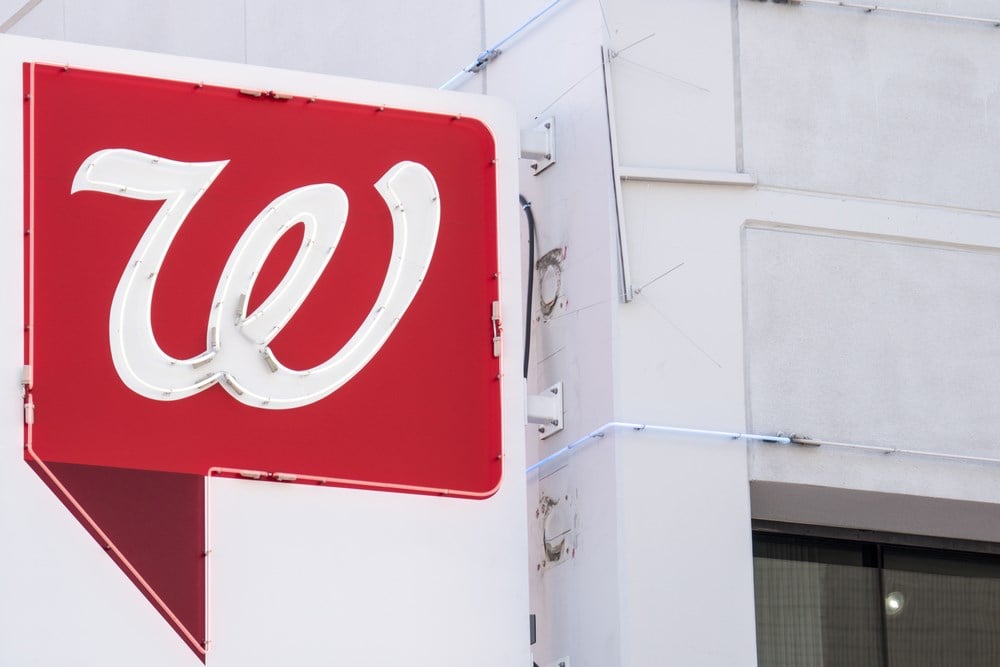Walgreen's Fresh New Lows, Is The Dividend Worth The Ride? Walgreens stock became a clear value play, offering an attractive dividend yield and tailwinds to position it as an industry leaders are two reasons to watch
This story originally appeared on MarketBeat

Today's market has changed; there seems to be a divided front between yield and risk. When interest rates are low, it is easy for investors to take on risk in stocks that may be promising some questionable growth targets because it is better to have a 50% chance of winning rather than a 100% chance of losing to inflation.
With long-term bonds paying a nearly 5.0% yield, investors have less incentive to take on stock risks since they can gain an inflation-beating performance for virtually zero risk.
Following this sentiment, your job today is to find stocks that provide a relatively higher yield with only a fraction of the risk seen in other names. Today, Walgreens Boots Alliance (NASDAQ: WBA) offers just this trade-off, but more on how later.
Assessing the Situation
Are you experiencing lockdowns again? Or are you hearing that the United States economy is on the brink of collapse with big banks failing and pensions depleting? The actual state of the economy seems far from these scenarios.
Why is Walgreens stock trading at a price-to-book valuation that is severely lower than where it sold during these disastrous periods of time? Understanding the market may be futile, but understanding that a 0.7x multiple provides the foundation for undervaluation is a better use of your time.
The truth is the financials of the business remain relatively solid. Revenues are still growing at a predictable low single-digit rate. At the same time, gross margins are around 18-22%, and debt has been manageable over the past five years.
Analysts see nothing wrong with the stock's recent sell-off, as they have held onto their consensus price target of $32.9 a share, implying that the stock needs to rise by nearly 42.0% from today's prices to realize these predictions.
Understanding that these analysts are still willing to risk the shirts on their backs by being bullish amid a declining stock can give you a sense of confidence that this entrenched brand name is not going anywhere.
Comparing the stock to its nearest competitor, CVS Health (NYSE: CVS), analysts also have something to say about the future potential for both names. With a consensus price target of $94.6 a share, this one only offers a net upside of 30.0%, lower than the 42.0% offered by Walgreens.
But wait, there's more; while CVS is giving you a dividend yield of only 3.3% today, Walgreens draws more investors in by offering them an inflation and bond-beating yield of 8.2%.
Is this dividend safe, though? The company's four-year average free cash flow (operating cash flows minus capital expenditures), which funds dividends, proves to be more than enough to cover these payouts.
An average of $3.5 billion, the latest dividend payout of $1.6 billion represents a roughly 47% payout ratio, more than affordable.
Turning the Ship
Considering that Walgreens's size is only a $19.5 billion market capitalization, changes that may result in significant improvements to the bottom-line are more accessible to effect, as opposed to CVS, a much larger $93 billion titan.
Turning CVS will be like turning an oil tanker in the Canal; it is challenging. Turning Walgreens is much more like taking a sharp turn in a speedboat; not only is it more fun, but you will indeed feel the force of it.
The question is, what is management doing to attempt a turn at Walgreens? How about a $1 billion cost cut proposed by its new CEO Tim Wentworth, for starters.
Regarding healthcare stocks, Walgreens may be positioning itself for the fastest growth shortly. With its U.S. healthcare segment growing like a hiccup, sales have gone from $2.5 billion to $7.9 billion in only twelve months; that's a 216% jump!
By exiting unprofitable clinics and entering into cost-savings plus technology scaling volume, Walgreens stock is building the momentum it needs for the next rally.
Being smaller than CVS also helps the stock price upside since a small increment in the bottom line (earnings per share) can have a much more significant impact on the stock's valuation.
These efforts are already yielding attractive results, as the total United States pharmacy segment's revenue rose to $27.7 billion to beat analyst expectations for the quarter. Considering that gross margins stand at 19.5% today, above CVS's 15.6%, these and other improvements may position Walgreens as the new industry leader.
Is it time to buy? That is entirely up to you to decide; however, consider that valuations are worse than in 2008, and the stock price is trading at the same levels as back then despite multiples higher EPS.








